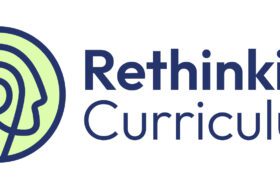In our third Early Career Fest session led by Lisa-Maria Muller, Paul Kirschner and Elizabeth Mountstevens delivered presentations on Using Cognitive Science to Inform Classroom Practice. In this webinar we explored: How we can use what we know about how pupils learn to make effective decisions in the classroom
The role of retrieval practice and spaced learning in embedding learning for the long term
What the challenges are in using cognitive science in education Participants also had the opportunity to ask questions in a Q&A towards the end of the webinar. Across one week, the Chartered College of Teaching will be hosting a range of fantastic online events to support you as you set out on your teaching journey. Learn from teachers and academics and access a wealth of insights to make the strongest possible start to your career. No matter what challenges lie ahead, the Chartered College of Teaching is here to support our fantastic profession to change lives and
Join us or sign in now to view the rest of this page
You're viewing this site as a guest, which only allows you to view a limited amount of content.
To view this page and get access to all our resources, join the Chartered College of Teaching (it's free for trainee teachers and half price for ECTs) or log in if you're already a member.





